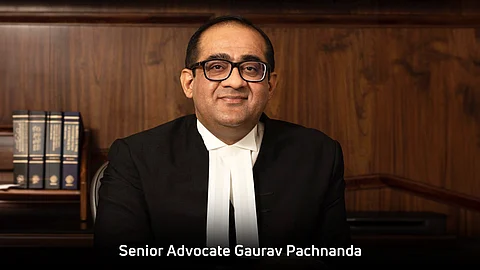
- Latest Legal News
- News
- Dealstreet
- Viewpoint
- Columns
- Interviews
- Law School
- Legal Jobs
- हिंदी
- ಕನ್ನಡ

In the last decade, India has witnessed a swift change in its arbitration jurisprudence. This change has been driven both by the Parliament and the Judiciary. While this is a continuously evolving process, what is striking about the changes in the last one decade is the balance that is gradually emerging between (a) party autonomy and (b) judicial intervention, specifically focused on making domestic arbitration quick, efficient and cost-effective.
For example, the introduction of Section 29A to the Arbitration and Conciliation Act, 1996, as amended (A&C Act), in 2015 and further amendment in 2019, was a unique experiment, that has rejuvenated domestic arbitration. Most domestic arbitrations are now concluded within a realistic timeline, even if not concluded strictly within twelve (12) months.
Similarly, interim protective orders issued by arbitral tribunals are now deemed as orders of the Court for all purposes, and are enforceable under the Code of Civil Procedure, 1908, in the same manner as if they were orders of the Court, pursuant to the insertion of Section 17(2) in the A&C Act. Again, this was also a unique experiment, which evolved together with the judicial interpretation of Section 27(5) of the A&C Act recognizing the power of Courts to punish a party for contempt of an order issued by the arbitral tribunal (in Alka Chandewar v. Shamshul Ishrar Khan, reported at (2017) 16 SCC 119).
Recently, the Constitution Bench of the Supreme Court of India has interpreted Section 34 and Section 37 of the A&C Act in Gayatri Balasamy v. M/s ISG Novasoft Technologies Ltd., reported at 2025 INSC 605 (“Gayatri Balasamy’s Case”), to hold that a Court exercising jurisdiction to set aside an arbitral award also exercises limited powers of modification and severance of the award, so that the parties are not forced to re-arbitrate their disputes. According to the Supreme Court, such an interpretation makes arbitration yield “more just outcomes”, because “the role of domestic courts remains crucial, as they function in a supportive capacity to facilitate and expedite the resolution of disputes.”
A deeper analysis of these developments is indicative of a gradual transformation of the underlying jurisprudential basis of arbitration, that is tailored specifically to India’s legal needs.
The Indian legal system faces a challenge of capacity. There are a disproportionately large number of disputes entering the court system for adjudication in comparison with its acceptable capacity. As a result, courts are increasingly getting overwhelmed by volumes. In this peculiar scenario, arbitration is not simply viewed as a consensual out-of-court dispute resolution mechanism alone, but is being increasingly perceived as a complete substitute for courts in adjudication of disputes.
This has resulted in a jurisprudential shift in the underlying philosophy of arbitration in India. The precedence conventionally given to party autonomy and the principle of non-intervention of courts is giving way to the ultimate objective of just, expeditious and final adjudication of disputes through arbitration.
As a result, the principle of party autonomy in arbitration is yielding to a principle of implied delegation of judicial power. Consequently, the principle of judicial non-intervention has evolved into a principle of facilitative but limited judicial intervention in arbitration.
In the Indian context, there are legitimate and persuasive considerations which explain this jurisprudential shift in the underlying philosophy of arbitration.
The State and the Judiciary have a larger public interest in ensuring just, expeditious and final adjudication of disputes. Until the court system remains overburdened, the potential of achieving this objective outside the court system through arbitration, serves this public interest. In these circumstances, these developments have become a means to the end of securing finality of dispute resolution and substantive justice.
Irrespective of different views regarding the interpretative exercise in the majority decision in Gayatri Balasamy’s Case, one cannot lose sight of the fact that as a matter of principle, the outcome of the majority decision is not necessarily in conflict with the underlying jurisprudence of arbitration. As a matter of fact, several sophisticated arbitration jurisdictions in the world provide for modification of awards by courts, based on the needs of their domestic legal systems.
Additionally, when this decision is considered in the context of this jurisprudential shift, it can be viewed as a step towards making dispute resolution through arbitration conclusive, expeditious and fair – under court supervision.
Having said that, if the power of modification and severance of awards traces its source to a clearly defined statutory scheme within the A&C Act, it would go a long way in clarifying the scope and preventing the potential misinterpretation of this power. Therefore, an amendment to the A&C Act to provide for the power to modify and sever awards issued in domestic arbitrations, within clearly defined parameters, would be a progressive development. It would also be prudent to statutorily recognize a distinction between domestic arbitration and international arbitration, for the purpose of modification of awards by Courts. That, however, will require a more elaborate and separate analysis.
There would be no real interest in maintaining a strict, mutual exclusivity between arbitration and courts, especially if that leads to arbitrations resulting in unfair, unjust and one-sided outcomes.
However, this is an evolutionary cycle and the jurisprudential basis of arbitration in India will continue to evolve based on the evolving demands of India’s legal system and improvements in India’s domestic arbitration ecosystem.
Gaurav Pachnanda is a Senior Advocate (India) and a Barrister (England and Wales).